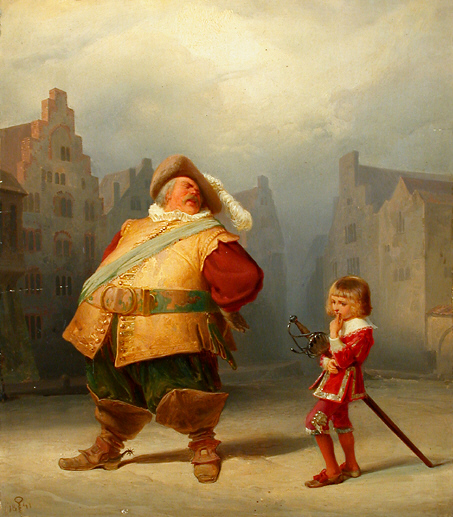Falstaff is the last of Giuseppe Verdi’s 28 operas, and also his only comic opera together with his early Un Giorno di Regno. The libretto was adapted by Arrigo Boito from Shakespeare’s The Merry Wives of Windsor and some passages from Henry IV (parts 1 and 2), the historical drama in which the figure of Sir John Falstaff first appeared.
The plot revolves around the thwarted, sometimes farcical, efforts of the fat elderly knight, Sir John Falstaff, to seduce two married women to gain access to their husbands’ wealth.
The extent to which Falstaff is a “Shakespearian” opera has often been debated by critics. Some commentators feel that Boito and Verdi have transformed Shakespeare’s play into a wholly Italian work and the fat knight into one of the archetypes of opera buffa. The opera ends with Falstaff who, after a series of ups and downs, declares “Tutto nel mondo è burla (Everything in the world is a joke)” and everyone starts laughing.
Verdi himself, however, felt that the Falstaff of the opera is not a conventional Italian buffo character, but portrays Shakespeare’s more ambiguous Falstaff of Henry IV: “My Falstaff is not merely the hero of The Merry Wives of Windsor, who is simply a buffoon, and allows himself to be tricked by the women, but also the Falstaff of the two parts of Henry IV. Boito has written the libretto in accordance.”
The work premiered on 9 February 1893 at La Scala, Milan. After the initial excitement, audiences quickly diminished. The rising young conductor Arturo Toscanini believed the work to be Verdi’s greatest opera; he said, “I believe it will take years and years before the general public understand this masterpiece, but when they really know it they will run to hear it like they do now for Rigoletto and La traviata”. Toscanini returned to La Scala in 1921 and remained in charge there until 1929, presenting Falstaff in every season. Although Falstaff has become a regular repertoire work it probably always will fall into the category of ‘connoisseur’s opera’.


